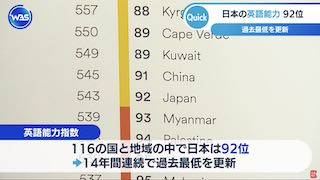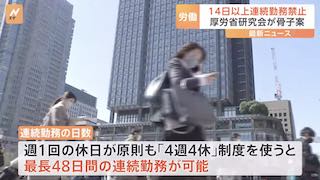Feb 15 (newsonjapan.com) - The sports betting industry has reached incredible numbers in recent years.
Valued at 66.98 billion dollars in 2020, it is expected to continue to grow at a compound annual growth rate of 10.1% until 2028. In the US, a record number of Americans were expected to place bets on this year’s NFL season. The growing digital infrastructure has fuelled the demand for sports betting with millions of bettors now able to wager using their cell phones, tablets and laptops whilst on the move. Furthermore, the increase in sporting events has attracted a new generation of sportsbook users, especially with the rise of eSports competitions which experienced increase viewership following the temporary pause of land-based sports due to the COVID-19 pandemic.
Over the past year, an increasing number of US states have relaxed their sports betting laws. Since the supreme court struck down a federal ban on sports betting in 2018, states have been able to legalize as they please. Fast forward to 2022 and 29 states now allow by law some form of sports betting. What differs from state to state is that some allow only in-person betting whilst others extend to online betting. One market which has seen particularly impressive growth, in the US, is online betting on the UFC. UFC is being tipped by many to eclipse the popularity of the NFL in the states, reasons for this range from the simplicity of the sport to the fact there is no off-season, there are events nearly every weekend, keeping fans interested year round.
A further 10 states are hopeful of finalizing legislation this year, meaning that by 2023 we could see just 11 without legal sports betting. The US is not the only country to have employed a relaxed view on sports betting of recent. Although it is still early, Japan reportedly began discussing liberalising their rules in April last year with hopes of pushing through legislation by 2024. Most of these discussions have revolved around two of the countries most popular sports, baseball and football. Reports suggest that the Japanese government see the financial benefits integral to generating revenue after the coronavirus pandemic. Sources at the Financial Times indicate that it would create a market totalling around $65 million.
One source at the Financial Times commented on the potential move “For years, both Japan and the outside world have been looking at the possibilities around deregulation of baseball and football betting as the Holy Grail. It’s probably too soon to say when it will actually happen, but what has happened to sport in the last year has moved the government a long way forward.”
The laws in Japan currently resemble those in the US and Canada in that you can bet, just not in the form that most bettors are demanding. Casino gaming is the biggest market in the country with Pachinko, a vertical pinball game, generating the most revenue. Wagering on sports however is limited to mostly racing events. Horse racing is the most popular event alongside motor racing and boat racing. Residents can also wager on pools for the J-League, the country’s most popular soccer league. Whilst the positive financial repercussions are the most major driver behind this change of heart, like the US, it is also a move to oust unregulated markets. Many bettors are also currently using foreign-issued credit cards to bet illegally via offshore websites. These illegitimate markets are currently valued at around $40 billion a year, meaning those same numbers could potentially translate in a lawful market.
One thing that you can be most sure of is that a sports betting market in Japan would not be similar to that in the likes of New Jersey. The strict control over the gambling industry in Japan by the government means it is highly unlikely that they adopt a free-market model, like The Garden State does.
The discussions being had in Japan may be premature, but they are certainly promising. It is reasonable to assume that momentum could be upped in the coming months in a bid to open the market before major soccer leagues commence their summer break. In the US, 2022 may be a huge year for sports bettors. Louisiana is expected to launch online betting in the coming months after taking their first retail bet during the first week of 2022. Ohio and Nebraska have all had sports betting bills passed and are just awaiting further action from regulators an optimistic timeline for these states would be the start of the NFL season 2022. There are still states such as Hawaii, Alaska and Idaho however who have shown no movement on expanding their sports betting laws with little reason to believe that will change in 2022. As this story develops in Japan and the US it will be interesting to watch for any movement from the ‘Big Four’ sports leagues and major European soccer leagues to see if they make any attempt to shape the conversation themselves.















